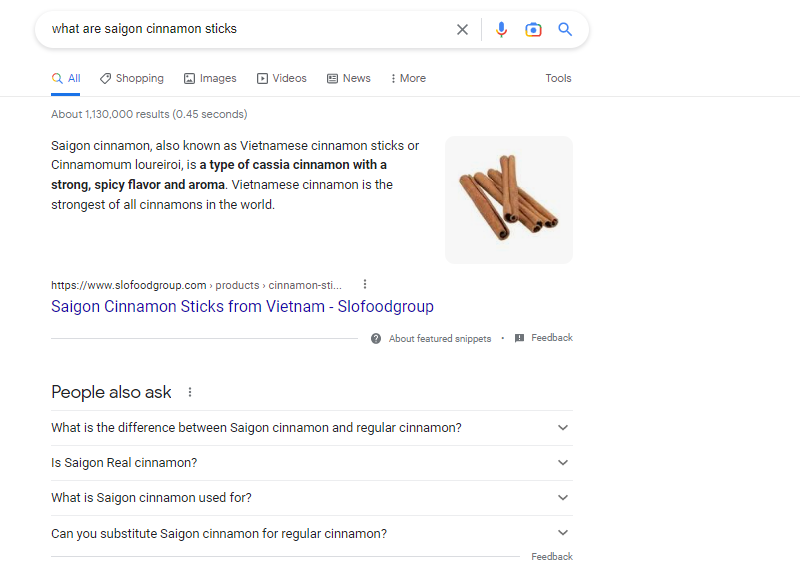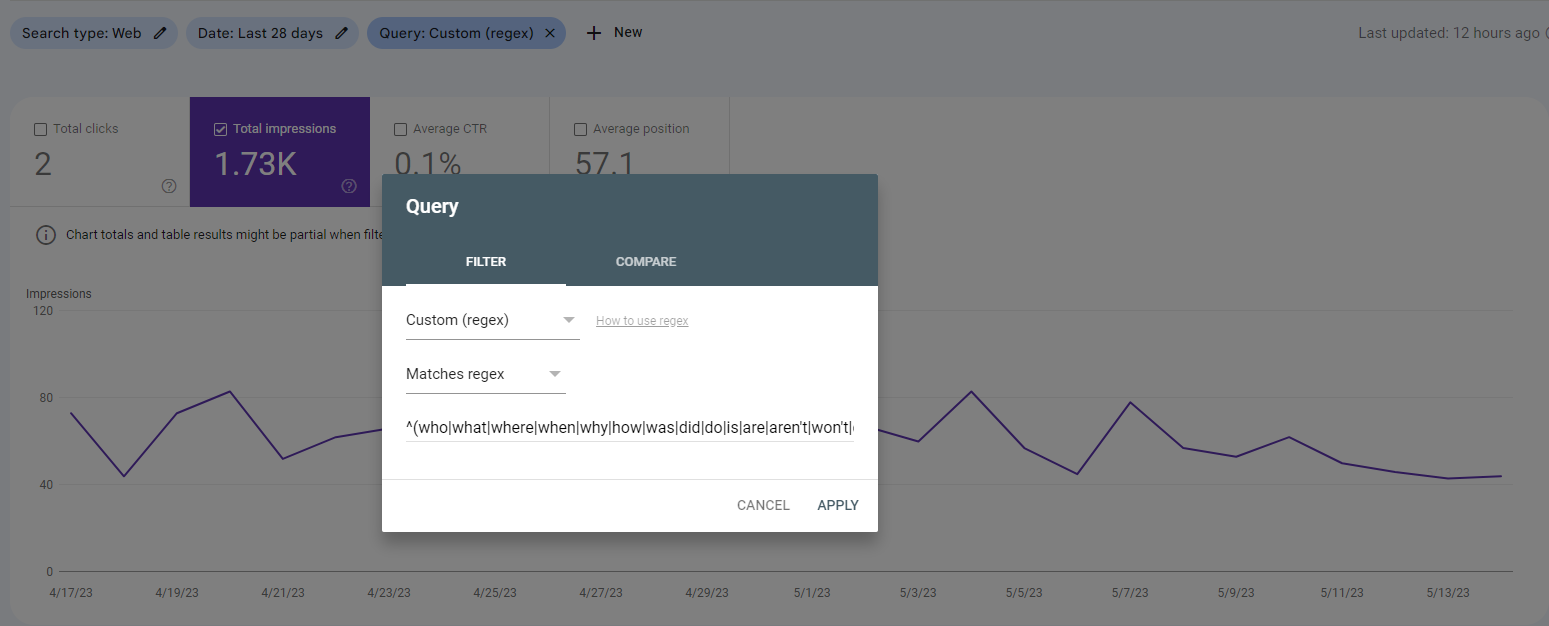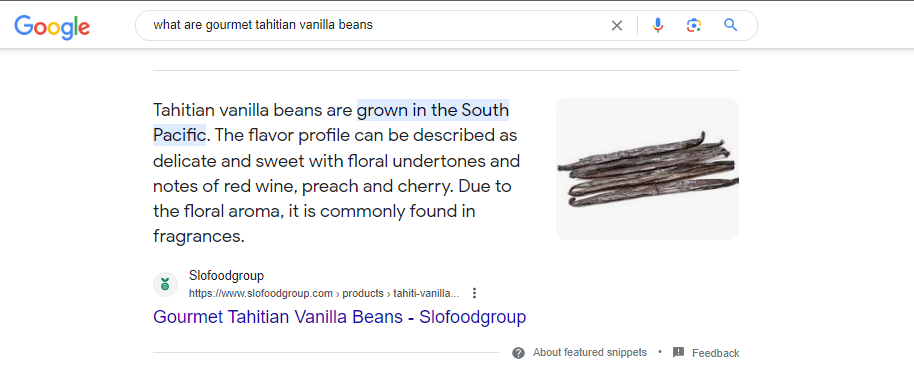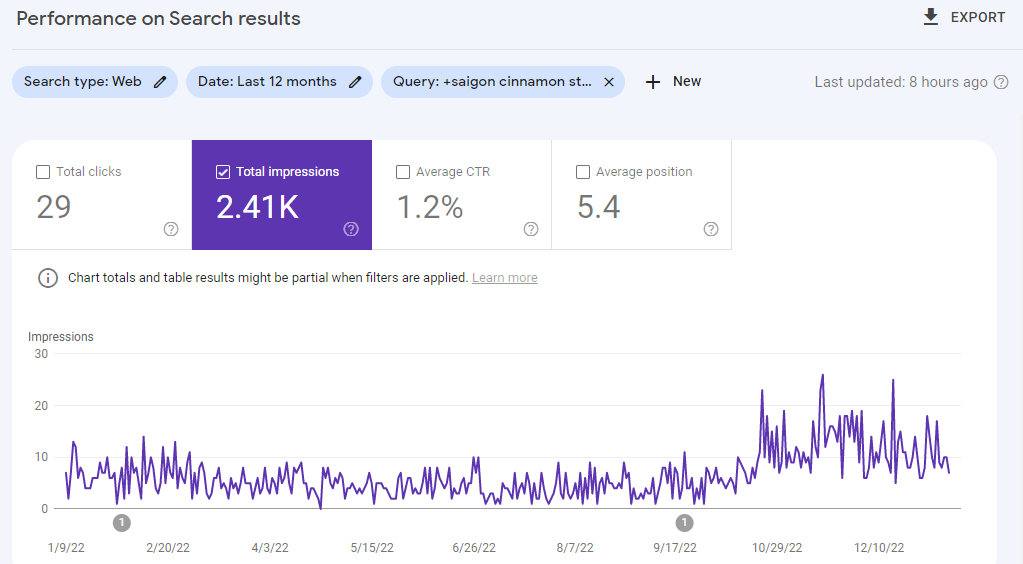BACKGROUND
Our client, a large online seller of gourmet spices and vanilla beans, wanted to improve search rankings and drive more traffic to their website to therefore increase revenue. We were confident in our optimization of the meta tags, but saw an opportunity to beef up the content on each product page, and developed a Frequently Asked Question (FAQ) strategy with schema markup.
What is Schema?
Schema markup is a type of structured data added to website code to provide search engines with more information about the content on the website. It uses a specific vocabulary to annotate and categorize different types of content on a webpage.
By implementing schema markup, search engines better understand the context and meaning of the content on the website. This markup provides additional information about various elements on a webpage, such as products, articles, events, reviews, recipes, and much more.
STRATEGY
We knew there were a lot of untapped questions being asked about each of our client’s products, so first we needed to develop a robust bank of FAQs. We started with the client’s own FAQ page, and then put the following tools to work:
- Google Suggestions
- People Also Ask
- Answer the Public
- Google Search Console
Google Suggestions is exactly what it sounds like – Google offers suggested search terms or phrases as users type queries into the search box. It aims to assist users in finding relevant search results by predicting their search intentions and providing suggestions based on frequently searched terms.
The “People Also Ask” feature appears in response to certain queries to provide users with additional, related questions and their respective answers. The section typically appears below the featured snippet at the top of organic search results.

We also leveraged Google Search Console and built a report of search queries that contained question words by entering this regular expression under the Performance section > New Query > Custom (regex):
^(who|what|where|when|why|how|was|did|do|is|are|aren’t|won’t|does|if)[” “]

Pro tip: you can also use this query to find blog topic ideas!
With an exhaustive list of FAQs in hand, we then ran each query through Google’s Keyword Planner to determine search volume and keyword difficulty.
People Asked, We Answered
Armed with that data, we got to work reviewing the content across the site, and conducted a great deal of research to come up with the best responses for each FAQ. Once the client gave the green light on our draft of the answers, the final step was to apply the FAQs and schema codes to the individual product pages.
The client’s site was built in Shopify, so we worked closely with the developer to have them build a custom block in the backend of the website where we manually entered the questions with FAQ schema implemented.
Here is an example of what a product page looks like once the strategy was implemented:

RESULTS
Our client is now ranking in the Featured Rich Snippet spot nationally for multiple question queries:

As a result, the website has experienced growth in organic impressions, traffic, and revenue. In particular, the 4oz Gourmet Madagascar Vanilla Bean product witnessed a 114% increase in revenue from organic search year over year. The 24K Edible Gold Transfer Sheets, Hard Press – 50 sheets product witnessed a 151% organic revenue increase during the same period.

When it comes to SEO, there’s a lot of focus on creating new and in-depth content. However, optimizing and reworking existing content can be equally as valuable, and utilizing question queries that people are actually searching can prove to be a successful strategy for increasing rankings and traffic!
Results
0%
increase in organic revenue
